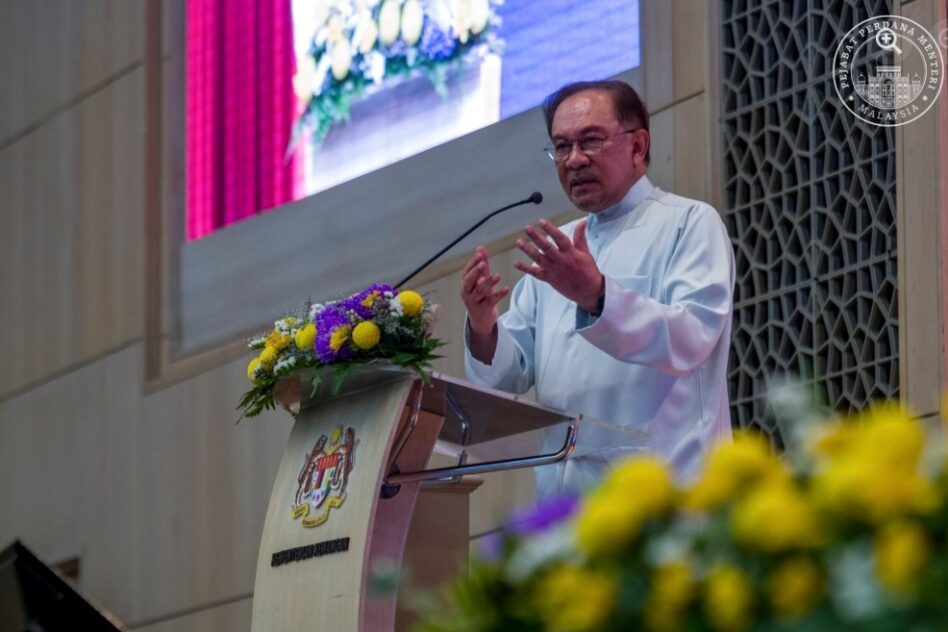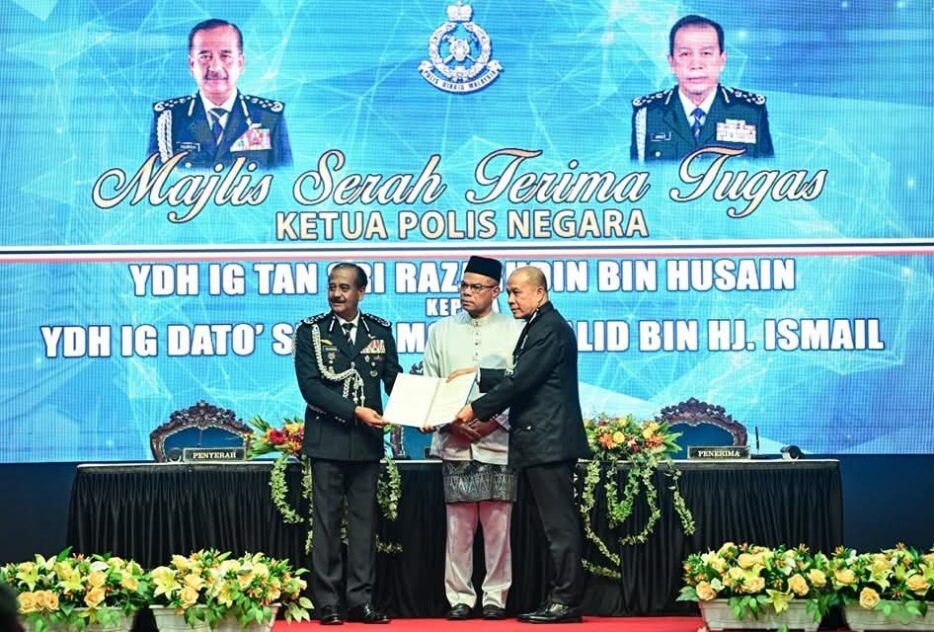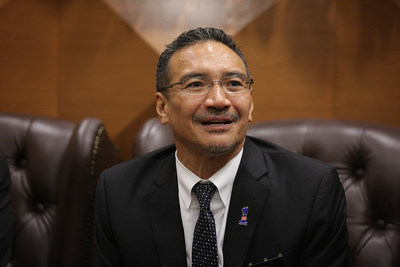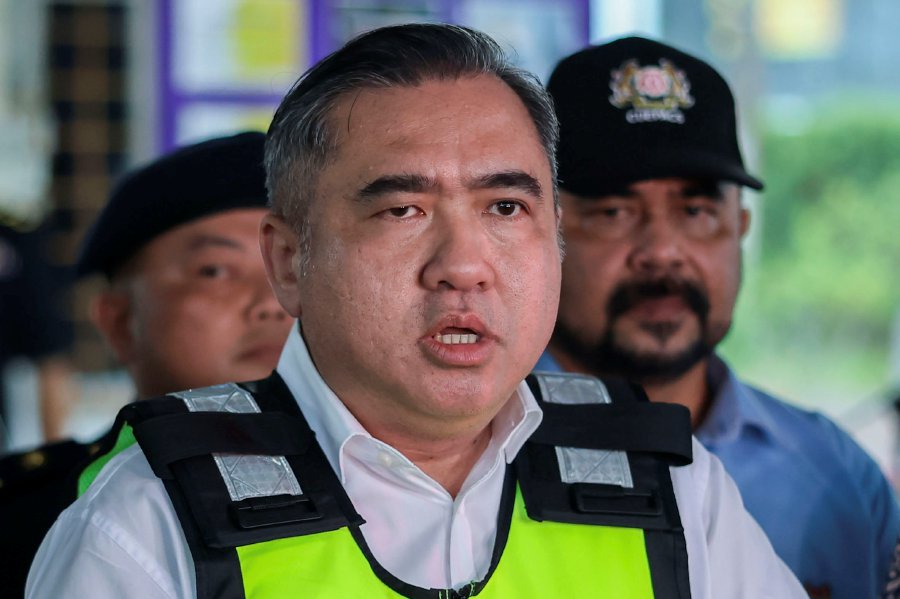IF Prime Minister Datuk Seri Anwar Ibrahim believes that the civil suit filed by his former research assistant Yusoff Rawther is a waste of time, then the logical course of action would be to instruct his lawyers to file a motion to strike it out through the proper legal channels.
However, rather than taking this straightforward legal route, Anwar has instead chosen to pose eight constitutional questions to the Federal Court. This move raises eyebrows and suggests a roundabout approach to achieving what might be interpreted as legal immunity.
The thrust of Anwar’s application is to determine whether the suit filed by Yusoff concerning allegations of sexual misconduct dating back to before Anwar became PM constitutes an attempt to impede his ability to perform his official duties.
Anwar’s defence team insists that he is not seeking immunity but merely legal and constitutional clarification.
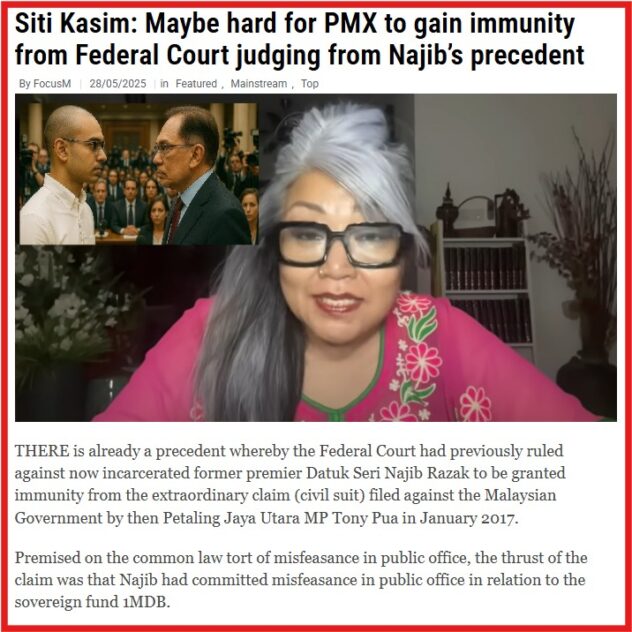
However, the very nature of the questions posed suggests an underlying objective: to have the court declare that such a suit unduly hampers the office of the prime minister, thus potentially invalidating it or shielding Anwar from its consequences.
Why seek immunity if innocent?
If this legal gambit succeeds, it could effectively grant Anwar immunity from civil suits that could be framed as interfering with his official duties – an unprecedented move in Malaysia’s constitutional history.
It is important to remember that unlike the Yang di-Pertuan Agong and state rulers, the PM does not enjoy immunity from legal proceedings under Malaysian law. This is not akin to the legal protections afforded to the US president.
As a democratically elected leader, Anwar should have no reason to seek immunity if he has done nothing wrong.
The Malaysian judiciary is independent and capable of discerning between politically motivated actions and genuine legal claims. If Yusoff’s suit lacks merit or is driven by ulterior motives, the courts can and will dismiss it based on legal principles.
Yusoff’s unrelated legal troubles such as being found in possession of an imitation firearm and drugs have no bearing on the veracity or relevance of his original allegations. These are separate matters and should not be conflated to discredit his civil claim without due process.
What is concerning is the signal sent when a sitting PM seeks the intervention of the highest court in the land to address civil allegations indirectly – potentially circumventing the usual judicial process.
This raises constitutional and ethical questions about the separation of powers and the principle that nobody – not even the head of government – is above the law.
If Anwar truly believes in the rule of law, he should allow the civil suit to proceed and let the court decide its merit. Seeking a pre-emptive constitutional shield from scrutiny – whether framed as clarification or not – undermines public confidence in the legal process.
Rather than expending time and judicial resources on what appears to be a tactical manoeuvre, Anwar should consider advising his legal team to address the civil suit head-on.
The Federal Court’s role is not to protect political figures from litigation but to uphold the constitution and ensure justice is served. – May 31, 2025
Former DAP stalwart and Penang chief minister II Prof Ramasamy Palanisamy is chairman of the United Rights of Malaysian Party (Urimai) interim council.
The views expressed are solely of the author and do not necessarily reflect those of Focus Malaysia.
Main image credit: Anwar Ibrahim/Facebook




